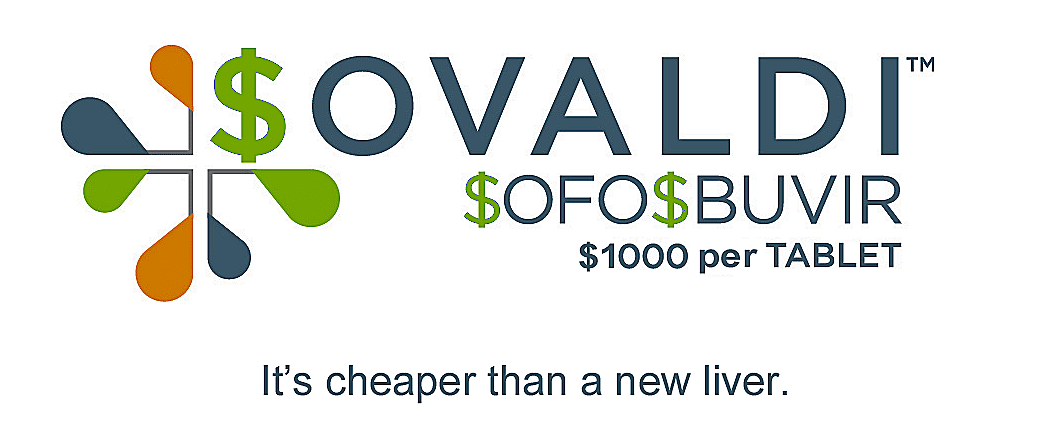Gilead Pharmaceutical multiplies the real value of the drug against Hepatitis C by 100%, condemning thousands of patients to be left without it
22 agosto 2015 – di Sergio Ferrari – POPOFFquotidiano
THE
THE
It is a liver disease caused by a virus, which has been known since the 1980s and affects no less than 150 million people worldwide, of which 8 million in Europe. In 80% of cases its evolution leads to liver cirrhosis or liver cancer. Without systematic screening it can seem to disappear even for years and, being contagious, especially by blood, has very serious consequences for the public health system.
Is it possible to cure it?
Until recently there were no effective drugs, although progress has been made since the 1990s and has succeeded in improving the quality of life of those infected. But paying a high price due to the very heavy side effects and with very long treatments over time.
What do they consist of?
It must be remembered that numerous researches have been done since then to develop a vaccine, as already exists for hepatitis A and B, which has made it possible to prevent the disease and limit the contagion. Unfortunately, researchers have encountered significant difficulties with regard to hepatitis C, as also in the case of AIDS, due to the genetic variability of the virus.
For four years, however, new hopes of curing the sick have been born because new drugs have been discovered. Sofosbuvir, marketed under the name Sovaldi by the North American multinational Gilead, is so far the drug that gives the most hope. Associated with other molecules already in use, the 90% has a successful cure with a relatively short treatment, of about three months, and with minor side effects.
It would undoubtedly mean a significant improvement for patients and doctors if this drug could be offered to all patients. But Gilead, which acquired the intellectual property in Europe, sells its drug at a huge price, between 40,000 and 60,000 euros for a quarterly treatment.
European health services do not provide free drug prescriptions, except for patients with very advanced liver disease. This policy represents a real inequality of health care, something scandalous in itself and even more so in Europe. It is a contradiction in terms of public health because this view only marginally reduces the risk of contagion allowing the disease to spread further.
A cost of the drug and an irrational policy…
However, it should be known that a large part of the research on hepatitis C has been financed with public funds. Additional data, Gilead, in fact, bought the "start-up" that developed Sofosbuvir for 11 billion dollars. Totally recovered in 2014 by marketing the drug.
What can Governments do in the face of this situation?
European governments, with a legal provision of the Agreement on Trade-Related Aspects of Intellectual Property Rights (TRIPS) of the World Trade Organisation, could authorize the production of a copy of Sofosbuvir, a drug generic, without asking for the authorization of the multinational that holds the patent. They could invoke the principle of public health, more important than Gilead's earnings.
Nobody has done it so far. They would rather endanger people's health and enforce inequality in patient care than attack Gilead within the framework of Trips.
Faced with this complicit passivity of European governments and the unlimited interests of Gilead as a multinational, the latter prefers to continue accumulating huge dividends for its shareholders rather than helping hepatitis C patients with its drug.
The outrage is enormous. And it has led, for example, the NGO Médecins du Monde Europa to file an appeal against the Sofosbuvir patent at the European Patent Office. An action that we hope will force governments to act and obtain a drastic reduction in the price of the vaccine, so that it is accessible to all those who suffer from this terrible disease.
(Source: alainet.org – Translation by Marina Zenobio)
Related news:
